A round-the-world backpacking adventure saw Mike Tyrrell on Phi Phi Island for the Boxing Day Tsunami in 2004, an experience which altered the course of his life. Here he shares his story and the lessons learned when faced with your own mortality.
Mike’s Story
After finishing university, I did what many young Aussies do when they want to procrastinate for a little while longer before winding up in fulltime work – and went backpacking around the world for ten months.
My adventures took me through Africa, Europe, trekking the Himalayas in Nepal and living on Phi Phi Island in Thailand, the timing of which coincided with the 2004 Boxing Day Tsunami. This was an indescribable experience of terror, pain and sadness, but also of hope and the capacity of the human spirit to prevail in the face of immense tragedy and loss.
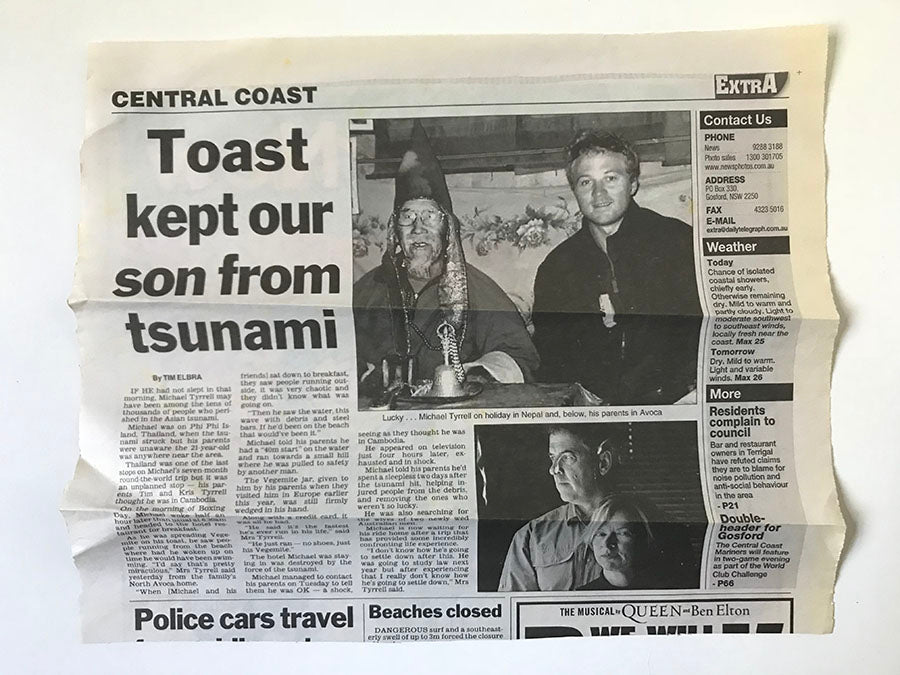
Paradise Lost
It was around 10am on 26 December 2004. I was on Phi Phi Island, Thailand. For anyone who hasn’t been there picture paradise. Nearing the end of my backpacking adventure, I was traveling alone and had just sat down for breakfast. I was wearing a pair of red boardies, had no t-shirt and my thongs (flipflops) were outside. I was carrying a small shoulder bag that held my wallet and a tube of Vegemite, with my passport and all my other possessions back in my bungalow.
Only my two closest mates knew I was on Phi Phi. We had partied there for a week in early November and I’d told them I would return for Christmas and spend a month learning Muay Thai. My family thought that I was in Cambodia as that was my original plan. I had tried calling them on Christmas Day to update them on my whereabouts, but with the rudimentary phone system on Phi Phi, couldn’t get through. In retrospect, it was better that they didn’t know where I was.
Before breakfast was served, I heard what sounded like a helicopter right above me. Then I heard screaming and saw people fleeing. It was chaos. My first thoughts were that this was a terrorist attack. I didn’t want to run for no reason. As I watched, I saw beach shacks being engulfed in water. That’s when I immediately started running. I didn’t know where, I was on auto pilot. Self-preservation kicked in and I overtook many people dodging and weaving, which would later haunt me for years to come.
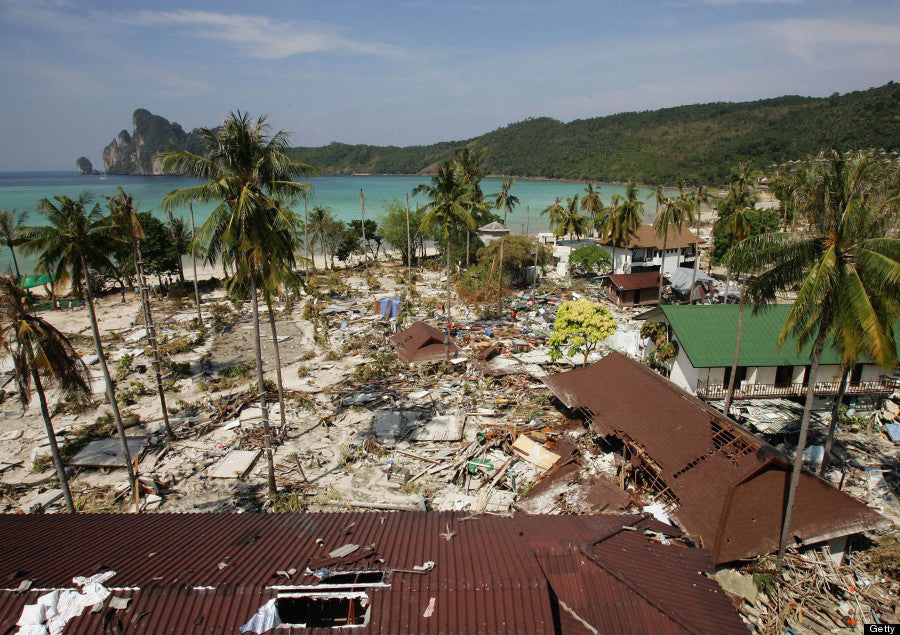
Split Second Decisions
There was a fork in the road and I chose left. Had I turned right I have no doubt I wouldn’t be here. I could hear the roaring power of the wave getting closer and closer. As I was running, a voice on a small hill yelled out; “Get up here, it’s high ground.” I scrambled up the hill. When I turned around, I saw complete carnage. The main part of Phi Phi was entirely covered in water, with water receding and covering the island like a pendulum for the next 30 minutes.
This was the first instance I realised a tsunami had hit the island. People were screaming and crying. The island was now covered in debris of concrete, rubbish and corrugated metal. I heard locals on mobile phones saying; ‘another wave was coming’ and calling for; ‘everyone to get up higher.’
Wave of Horror
As the water receded and stopped washing back over the island, I headed down the hill. In front of me was a dead, unclothed Thai lady. This was the first dead person I had ever seen and the first of hundreds that I saw during the next 36 hours. Afterwards, I had recurring nightmares of this vision for months.
Everyone scrambled for higher ground whilst a few of us joined together to pull out those who were trapped in the rubble. We made groups of four, as this was the easiest way to carry the injured and dead over the rubble. There was around 50 people helping to recover the injured. The rest of the island was in shock and fled to the lookout, high above Phi Phi.
The Search Begins
Over the next few hours we dug out and pulled to safety many injured, whilst constantly dealing with the threat of another wave coming. I can remember being in the middle of the flat section, exposed and having to run over the debris to safety as apparently another wave was coming. It didn’t. We gradually gained confidence to stay in the exposed area for longer.
We found the one high hotel in Phi Phi. It was next to a grassy patch that helicopters could land on. We used doors as stretchers and would take the injured to this hotel. It was like a makeshift hospital that held many injured and dead. The hotel provided protection in case another wave came and also provided easy access to the helicopter.
Whilst carrying seriously injured people to the helicopter, we noticed some individuals with all of their luggage, trying to push in front and board the helicopter first. This was tough to deal with, but we managed to install some order. People react differently in tough situations.
We searched the ruins until well after dark using torches that we found. We were exhausted. It was too dangerous to remain in the open area and I needed a rest. I headed to the top of the lookout. It seemed like everyone on the island was there, including all the animals and insects. People were screaming and crying uncontrollably. I would wake up for months after this night feeling like insects were crawling all over me and from the wailing screams in my dreams.
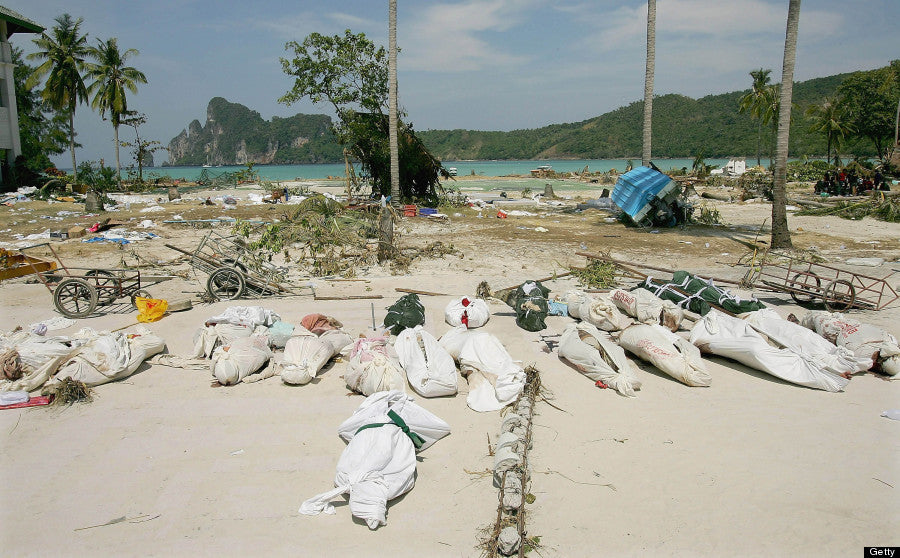
Darkness and Light
I didn’t sleep at all that night. I was lucky to find the only person I knew on the island, Maria. I was sure she had died as I had tried searching for her earlier in the day. She was one of the lucky ones and for once had woken before 10am. We lay on the dirt, hugging to keep each other warm. Despite finding Maria, it was by far the worst night of my life.
As soon as the sun rose, I headed back down to continue looking for others. I teamed up with two blokes who have now become lifelong mates. We continued looking for the injured together and would take them to the helicopter area for evacuation.
During this time, I learned that one of them had lost his wife during the tsunami. We searched for her everywhere but could not find her. We later found out she was in the morgue in Phuket. Despite the trauma my mate was suffering, he kept it together and worked tirelessly to help others. He was a true inspiration.
Having pulled to safety many of the injured people, we began to find only dead people. One highlight of the day was digging out a young girl from sand and dirt. She had survived overnight, trapped. She had amazing fight. Others that we took to safety had missing limbs, broken bones and large lacerations.
Evacuation
Those that were injured and trapped had now mostly been pulled to safety. Ferries began arriving during the day and evacuated people to Phuket. I knew a hidden track that went from the beach to the lookout and provided the easiest evacuation route, so people did not have to climb through debris. For several hours, I led people down to the ferries. We were the last group to leave the island, jumping on a large cargo type boat at dusk on 27 December 2004.
We were taken to Phuket and stayed in a school hall. The next day we went to a large area where embassies had been temporarily setup. We were issued with temporary passports, which were basically a piece of paper with a photo on it and a short letter asking the Thai and Australian authorities to be lenient and allow access back to Australia.
We did what we could for our mate who had lost his wife. His family were joining him and so we left for Bangkok aboard a flight paid for by the Thai government. When we arrived we felt like zombies. Nobody had any concept of what had just happened and this made me feel terrible. I seriously struggled, even battling to have a conversation.
I only had to wait 12 hours for my flight to Australia. I arrived back home on New Year’s Eve, exhausted and seriously sunburned.
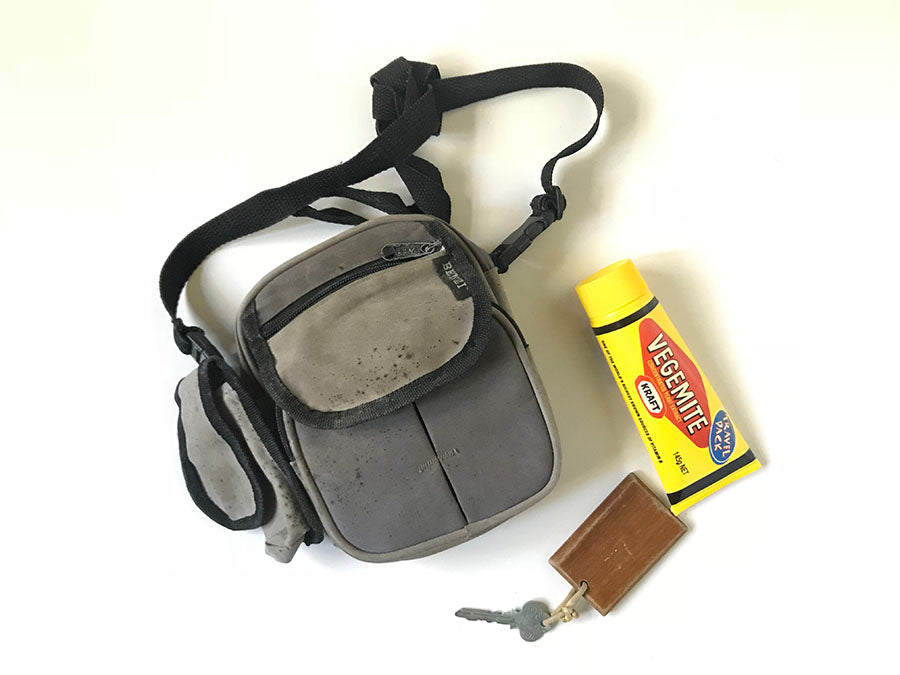
Aftermath
It has taken me a long time to deal with the trauma of my experience on Phi Phi Island. Having a loving family who supported me was of great benefit. I tried to manage my feelings of guilt for those who I ran past by thinking about the people I helped following the event. Had I not made it to safety, there may have been others who were never rescued.
We were on an island paradise. Half the island died on that day, approximately 2500 people. I am one of the lucky ones and although it was a traumatic experience, it has made me stronger and changed my outlook on life.
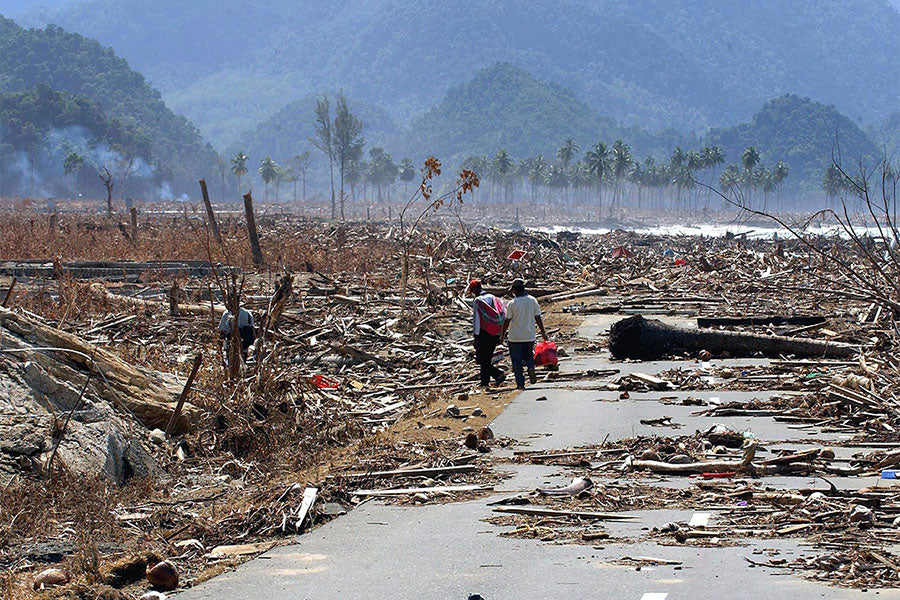
Going Back
I returned to Phi Phi many times during the years immediately following the Tsunami to help rebuild the local community. At the ten-year anniversary in 2014, I was reunited with many people who remembered me from when I carried them to the shelter for evacuation.
One particular bloke we carried to safety had broken every bone in his back. We had to dig him out and carry him on a door that we had found floating in the debris. We got him to safety and evacuated. He broke down in tears when he saw me. This was an incredibly humbling and unforgettable experience.
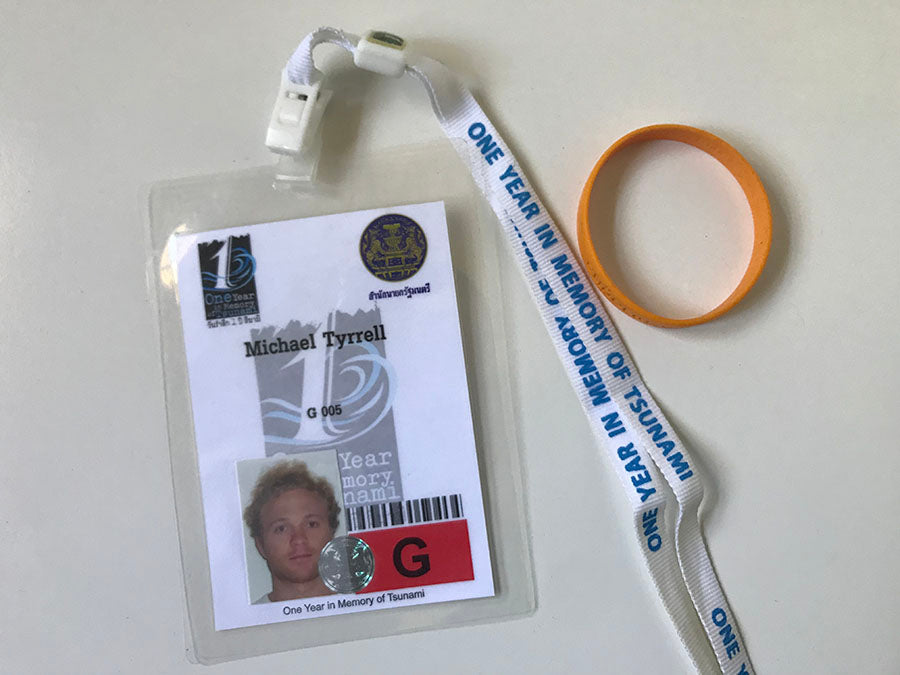
Lessons Learned
I often reflect on the events of the 2004 Tsunami and pay my respects to those who died. When I think about the events of that time, I feel someone is truly looking out for me.
This experience has taught me that you never know what is around the corner, so you might as well make the most out of life. Everything can change in an instant. This isn’t something that should cause you to live in fear, but instead cherish each day and make the most of every opportunity.
When I find myself getting swept up in ‘life’ and becoming too bogged down and ‘busy,’ I try to centre myself and come back to my reality, which is being thankful for being alive and living in the moment with the ones I love most.

